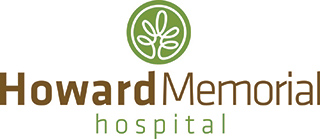Blog
PUT A LITTLE LOVE IN YOUR HEART HEALTH

February is national American Heart Month and while we may have heard about the importance of heart health before, it's the perfect month for that friendly reminder to be diligent when it comes to matters of the heart.
KNOW THE SIGNS
Often people overlook warning signs they're experiencing that are actually heart trauma. Not all who have heart attacks have the same symptoms nor the same severity of symptoms. Some have mild pain; others have more severe pain. And some people have no symptoms while others experience a variety of extremely painful and obvious ones. The most common symptoms include pressure, tightness, pain, or a squeezing or aching sensation in your chest or arms that may spread to your neck, jaw or back, nausea, abdominal pain, shortness of breath, cold sweat, light-headedness or fatigue.
THE IMPORTANCE OF CARDIAC REHAB
And if you've had a cardiac trauma, how do you navigate the difficult road back? Cardiac rehab can be a critical component. In the case of Todd Moore, “Cardiac rehab was a game changer,” and “the best confidence booster.”
Todd, had his heart attack at age 46, and was perhaps one of the last people who one would expect to experience a cardiac episode. At 5'11” and 190 pounds, Moore recognized the warning signs he was feeling because others in his family had experienced the similar symptoms so he sought help immediately. Because of his diligence, Todd learned that 90% of his arteries were blocked and made it in time for the surgery that saved him from “the widow maker,” a heart attack named because of its usually fatal results.
After he had sufficiently recovered and rested, Todd went to cardiac rehab three days a week for ten weeks. During the sessions the cardiac rehab team at Howard Memorial Hospital evaluated his cardiac ability and gave him exercises to do during his sessions and others to continue at home. “Going there,” Todd says, “was one of the best things I've ever done.”
If you are recovering from a heart attack, strongly consider the benefit of cardiac rehab. You will receive the support, compassion, and care that will keep you motivated, educated, and help you to stay on course to prevent cardiac episodes from happening again. Show yourself – and your heart – some love and get the care you need to live a long life, with good heart health. Talk with your primary care provider about your heart health. If you don’t have a primary care physician, we can help. Click here to meet our Primary Care Providers.
Posted in: Cardiology, Health